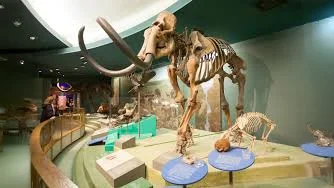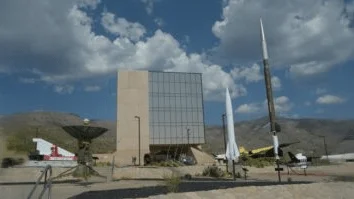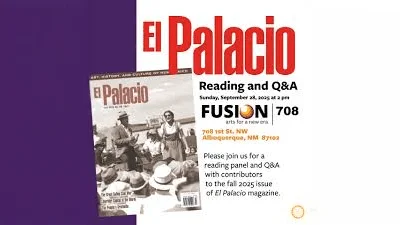I don’t know what it is about experimental film that attracts me. Maybe it’s the poetic nature of the medium, a nonlinear methodology of expression. Maybe it’s the ethereal and eclectic eye the filmmakers employ, a dream-like exploration of the unconscious or an outsider's view of reality. Or maybe, it’s that many of the experimental films have engaging and interesting soundtracks. It’s probably all the above.
Before Experiment 1 (the name given to the sessions at Experiments in Cinema), event founder Bryan Konefsky reminds the audience gathered at the Guild Theater in Albuquerque, New Mexico—for the 20th Anniversary gala— that the event hopes to “inspire,” making transformative and “thoughtful” works of art, “celebrating cinematic artists from around the world.”

Experiments in Cinema poster
Sitting through many of the Experiments I believe Konefsky’s hope was fulfilled.
Case in example: Experiment 1’s inclusion of Cecilia Araneda’s (Chilean-Canadian), lessons on flight. In a beautifully rendered 4:27-minute film, the viewer is offered a photo-negative of a hummingbird, flying amid colorful and an ever-changing background with an otherworldly soundtrack. It is a lovely work of art. When the final credit rolls with a dedication to María Laurina Espinoza Hernández, the one “who planted the gardens the hummingbirds feed on, and who wished for this place to never be forgotten,” the piece took on a very human quality, a memory of identity.
Experiment 5’s focus was on the integration of film and poetry, “How video poetry makes new meaning from the combination of text and moving image.” All the works were marvelous during the showcase (curated by Rana San and Chelsea Werner Jatzke), but three films stuck with me: on a bus (around men) by Ariana Simpson (for its strong poetry), Stabat Mater by Italian, Marina Sagona (for its deeply personal message) and In Between City (Meziměstí) by Czech Republic filmmaker Llya Kreine’s (for its conceptual vision). Running roughly 9-minutes, In Between City (Meziměstí) is a collection of “fragments, stories, images, and impressions” using ink drawings, city soundscape, and abstract storytelling, documenting a trip through a European city. All the films were unique and generative.
Two films in Experiment 12 made a deep impression on me. The first was The Last Visit by Thai-Estonian filmmaker Keawalee Waruthkomian. The 15:40 work was an artistically rendered look at bereavement, the loss of a family member. The second was TEXtrucTuras (Humanas) by Spaniard, Luis Carlos Rodriguez. In his 8:45 work, Rodriguez incorporated artificial intelligence as part of a research project to create a dazzling visual display, MC Echer meets Hieronymus Bosch, with a touch of Salvador Dali tossed in for good measure. It was quite a ride.
One of the highlights for Experiments in Cinema’s programming is hearing from many of the filmmakers. Through interviews and personal contact, the audience attains deeper insight on the process and poesy of the films. As an example, meeting noted Japanese filmmaker Takashi Makino. Much of his work concentrates on visual investigations incorporating language, religion, and cosmology. Interacting with him was a treat. Experiencing his Power of Abstraction session on Easter afternoon was amazing.

Ben Popp, Deborah Fort, and Bryan Konefsky in conversation. Photo by Brian C. Nixon
When introducing Makino, Bryan Konefsky stated he is “considered one of the leading moving video artists of his generation.” Yet, when asked to give a word about his work (which he briefly did), Makino asked us to pause for a minute of silence to remember a fellow Japanese film artist who died of cancer in New York earlier in the day.

Takashi Makino and Bryan Konefsky. Photo by Brian C. Nixon
It was a poignant minute. Because the next 24-minutes were spent experiencing Cinéma Concrete, his abstract film of space-like dreaminess and beauty. It was a fitting tribute.
Here's the thing: Experiments in Cinema is not just for those who attend in person. Starting on April 28, anyone can view many of the works. Simply, log on to www.experimentsincinema.org and watch the online films, a celebration of art and the international artists that create them, a visual examination of what it means to alive.
Brian C. Nixon, Ph.D., is Chief Academic Officer and professor at Veritas International University in Albuquerque. As a writer, musician, and artist, his interests surround the philosophical transcendentals: truth, beauty, and goodness. You can contact Brian via his Bandcamp email address: https://briancharlesnixon.bandcamp.com









